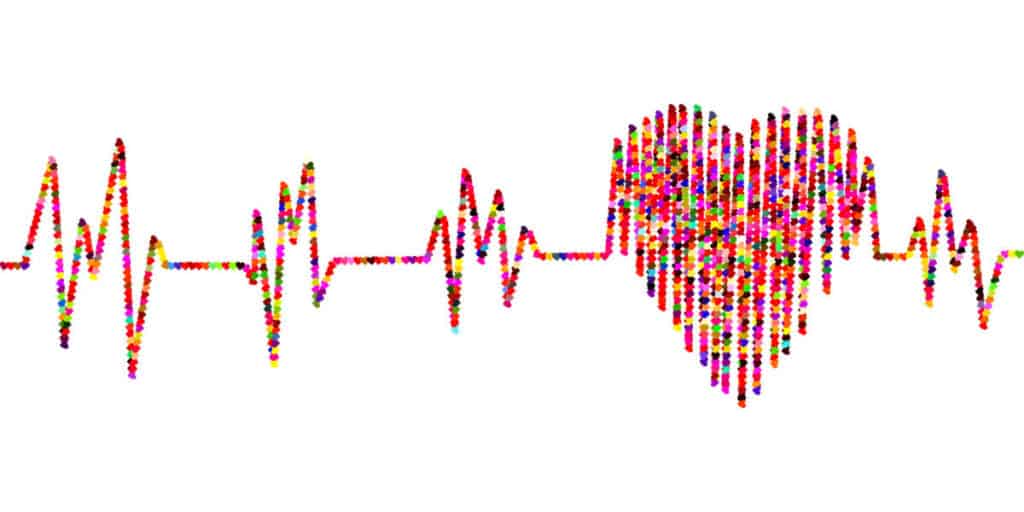Can a Keto Diet Affect your Period?
Does the Keto Diet Affect your Menstrual Cycle (period)? The answer is yes.
Based on studies on the subject, women on a keto diet can expect to experience several changes in their periods. Because of the way that keto works, side effects further extend to body hormones which in turn means the menstrual cycle is affected too.
A keto diet is low-carb and high-fat in content and forces the body into a stage of ketosis, a self-preservation mode, where the body burns fat for energy instead of carbohydrates as the latter is absent.
With a keto diet, you do not need to be starving, you just do away with carbs in your diet and force the body into ketosis after it has burnt up all its glucose stores.
During this period of adjustment and at times after it, the body’s functions including hormone sections and control becomes affected.

What is the Keto Diet
The Keto diet has become a very popular option for many people due to its various health benefits. Its main benefits are how it results in rapid weight loss which can then be maintained at your desired weight.
Other advantages of using a keto diet are how it helps you fight several diseases.
These include those associated with overweight like high blood pressure and heart diseases, blood sugar complications and it has also proven to be therapeutic to mental conditions like epilepsy.
With so many benefits of which there is scientific evidence, the next step is to determine what side effects the diet may have on your body.
You have probably familiarised yourself with the keto flu which refers to a range of side effects like headaches and lethargy among others.
These side effects usually last at most a week as the body adapts to the various changes of a new energy source.
Read my article on the ketogenic diet – the ultimate beginners’ guide to keto for a more in-depth view of the keto diet.

Changes Keto Causes on Your Periods
It is important to note that the keto diet’s impact on the menstrual cycle is varied depending on the individual.
Some women may not experience any changes while others will be adversely affected.
However, changes in the menstrual cycle are common, and according to one study, they are the second most experienced impact after weight loss.
In the survey, 65 % of the women in the study experiencing weight loss, and 45 % of the whole group observed changes in their menstrual cycle.
The impact on your monthly period manifests itself in the following ways;
- Irregular periods and; if you have been having your periods at set times of the months, you may experience delays, or they may come earlier than usual.
- The density of the periods and; the periods you experience could be either lighter or heavier when you start the keto diet.
- Amenorrhea; is a state where the monthly cycle disappears for three months or more. It is an extreme case scenario.
Observing a menstrual dysfunction is not just limited to the keto diet. It is only severe in this case because of the fast impact of keto on the body and body weight loss.
It should not be a problem past three months since by then the body should have reset its hormonal functions allowing your periods to stabilize.
In case you still observe irregularities then you should see your doctor.
How Does Keto Affect Your Period?
The keto diet is going to affect your period by changing your estrogen and progesterone balance.
These are sex hormones that have varied body functions, and both affect the menstrual cycle.
Progesterone is produced during ovulation and helps prepare the body for pregnancy and also influences thyroid function.
On the other hand, estrogen, which is the primary sex hormone in the female body is responsible for the development of secondary feminine features like pubic hair, breasts and hips, and reproductive organs.
It is also important as it regulates the rest of the reproductive system and the menstrual cycle.
Any disruption of the hormonal balance has significant implications across the whole female body.
Some of the areas affected include
- These two affect your neurotransmitter levels. Therefore, any changes in the hormones will affect your mood, sleep, and the functioning of your mind.
- Estrogen is essential in bone metabolism which means that any drop in the hormone can lead to osteoporosis.
- Progesterone levels in the body also affect your thyroid hormones meaning any imbalance can result in thyroid dysfunction.
- Estrogen protects your cardiovascular system and your metabolism process.
- During pregnancy, progesterone blocks your immune system.
A small gland maintains the balance of the two hormones at the base of your brain known as the pituitary gland.
However, lifestyle and a diet, like a keto can easily affect how the hormones are secreted.

Positive Changes Whilst on Keto
- Ketosis affects your insulin sensitivity which in turn has a significant effect on the sex hormones.
- Ketosis increases the levels of the stress hormone cortisol in the body which affects the menstrual cycle. Higher levels of cortisol mean the body has detected the process as a stress factor. It also changes the estrogen-progesterone balance resulting in menstrual irregularities.
- It activates the hypothalamic-pituitary-adrenal axis also known as the HPA axis. The HPA axis has a major function in the levels of essential hormones that affect the monthly period cycle.
Low-calorie diets result in a drop in thyroid hormones. In turn, this causes a deficiency in progesterone levels.
Low thyroid levels also cause a reduction of the Sex Hormone Binding Globulin (SHBG) which in turn leads to overproduction of estrogen in the ovaries, and you end up experiencing extended and heavier periods.
On the other hand, high thyroid levels will lead to an increase in the production of SHBG which leads to much lighter and shorter periods.
Insulin resistance is another factor that affects the estrogen hormone. Hyperinsulinemia or high insulin resistance leads to low production of estrogen. If you manage or stabilize the insulin levels, then its effects become neutralized.
At other times the sheer loss of weight over such a short time almost catches the rest of the body unaware. With deficient estrogen levels, the uterus is not prepared for a possible pregnancy, and thus no ovulation takes place, and you start missing periods.
luteinizing Hormone
Another hormone affected by the Keto diet is the luteinizing hormone which is released from the brain.
The lack of carbohydrates as a result of the keto diet results in changes in hormone levels. This can be seen in a drop in hormone production.
Changes in the luteinizing hormone then result in shorter and lighter periods or at times instances of amenorrhea.

Positive Impacts of a Keto Diet on the Menstrual Cycle
The impact of the keto diet on a woman’s monthly periods is not always negative. In several other cases especially for women past their menopause or who have other existing conditions, the effects of a keto diet result in an improvement in how you experience your periods.
It is very accurate for women to have Polycystic Ovarian Syndrome or PCOS. PCOS is a condition that inhibits the development of the release of eggs from the ovaries.
In PCOS, high insulin levels in the body lead to an increase in the androgen and testosterone levels in the body.
An increase of the male hormones affects the menstrual cycle by limiting the production of estrogen which limits ovulation.
It is a disease that also affects the fertility of a woman. The keto diet helps by achieving faster weight loss as well as controlling inflammation in the body creating great conditions that promote ovulation.
Women who also have existing conditions especially the ones related to metabolisms like obesity and diabetes benefit significantly from a keto diet which helps normalize any menstrual irregularities they may be experiencing.
Most of these conditions arise from having too much body fat. Too much body fat that is not being broken down results in the fat tissue storing more estrogen. And an increase in estrogen levels has been associated with worsening the PMS symptoms.
By forcing the body to get into ketosis and burning fat for energy, the keto diet helps regulate the levels of estrogen in the body, especially what gets stored by the fat tissues.
It has also been shown that consuming as little as 5 % more fat in your diet than usual results in a 12% increase in the levels of androgen and estrogen in women after menopause.
How to Manage Ketosis When You See Changes in Your Periods
To help your body adjust to a keto diet without having an effect on your periods, here are some tips to use;
- Ensure you eat carbs before and after workouts or periods of intense activity for athletes and those who have physically active jobs.
- People having thyroid complications both hyper or hypo all need to ensure they consume at least 50g of carbs daily. You might have to skip the diet since their condition can be worsened by keto.
- Ensure they meet the fat requirements daily to stabilize hormonal behavior.
- Avoid other sources of stress to your body to check the levels of cortisol in the body.
- Try doing keto in 5-day cycles leaving two days for normal carbs consumption until the body adjusts to the diet.
Conclusion
It is normal for women to experience changes in their menstrual cycle while on a keto diet. The diet impacts the significant body hormones which regulate or can influence periods.
Should the changes persist after three months you should see a doctor!
References Used in This Article
- History of the ketogenic diet.
- Beyond weight loss: a review of the therapeutic uses of very-low-carbohydrate (ketogenic) diets.
- Novel ketone diet enhances physical and cognitive performance.
- Ketosis and appetite-mediating nutrients and hormones after weight loss.
- Fat intake is associated with serum estrogen and androgen concentrations in postmenopausal Japanese women.
- Alteration of insulin sensitivity by sex hormones during the menstrual cycle.
- The Effect of Low Carbohydrate Diets on Fertility Hormones and Outcomes in Overweight and Obese Women: A Systematic Review.
- Mechanisms of action for the medium-chain triglyceride ketogenic diet in neurological and metabolic disorders.
- The effects of a low-carbohydrate, ketogenic diet on the polycystic ovary syndrome: A pilot study.
- Luteal-phase estradiol relates to symptom severity in patients with premenstrual syndrome.
- Weight loss and menstrual cycle: a clinical and endocrinological evaluation.




